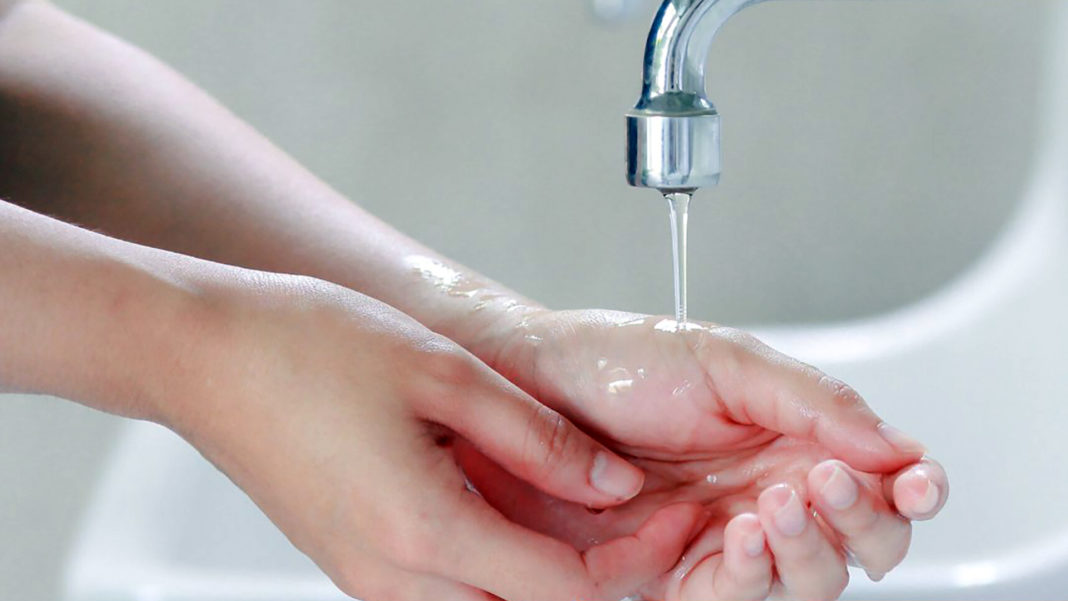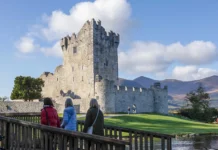Donal O’Keeffe: The best way through this is not to fear dying from Covid-19, but rather to fear that you may kill other people.
Last weekend, a video went viral on social media. If you haven’t seen it, it’s worth your time. It features a look at a copy of L’Eco di Bergamo from February 9 of this year. L’Eco is the daily paper of Bergamo, a city in the Alpine Lombardy region of Northern Italy.
As you watch, the narrator opens the newspaper and turns to the obituaries. That day, just over a month ago, they covered just a page and a half. He then turns to the copy of L’Eco from last Friday, 13 March. The obituaries now cover ten pages.
I know you don’t need to be reminded, but every one of those death notices is dedicated to someone who has left behind a hole in the world which can never be filled: a parent, a child, a sibling, a friend.
I saw the L’Eco di Bergamo video when Richard Chambers of Virgin Media News tweeted it on Saturday, noting “This is why we all have to do what we can over the next number of weeks. Bergamo is a city the same size as Cork. We’re in this together.”
Bergamo’s Eco was founded in 1880, only 12 years before Cork’s own Echo. It’s just a coincidence, of course, but it’s another little parallel that might give us pause.
We are now in the position of trying to hold Coronavirus at bay, to learn Bergamo’s lesson and act quickly to slow down the spread of the virus and ‘flatten the curve’ so that our health service is not overwhelmed. To do that, we all need to ensure that we’re not spreading the virus: we need to follow the best medical advice and practice social distancing, wash our hands regularly, and self-isolate if feeling ill.
It is impossible to predict the long-term after-effects of Coronavirus. Take that most Irish of institutions: the pub. Many of the pubs which have recently closed will never open again, meaning that some villages will lose the only social centre they have. When the Government called – entirely sensibly – for all bars to close down, 50,000 people lost their jobs overnight. When Monday morning dawned, business closures meant probably three times that number were out of work. If – as expected – restaurants close too, that’s another 70,000 people worrying about their rent or mortgage.
Old barmen like me will tell you that Millennium Night finished New Year’s Eve in pubs, and – alongside the smoking ban and the rise of cheap off-licence booze – helped to greatly diminish the pub’s place in our collective consciousness. Such was the hype in advance of New Year’s Eve 1999, that bar-owners predicted they’d be packed out. Bar-staff, anticipating a night of chaos, began to kick up, and unions demanded their members be paid a multiple of the going rate. Bar-owners then started talking about charging admission, to pay bar-staff’s inflated demands. Punters responded by staying away in their droves, having house parties instead.
What nobody could have predicted was that house parties happened the following year too, and suddenly the pub had lost its stranglehold on Irish social life.
What happens now when, over a period likely of months, we all get completely out of the habit of going to the pub? What about the café? The restaurant?
What happens when older people, à-la-carte Catholics since the child abuse scandals unmasked the Church’s hypocrisy, are forced to break the life-time habit of weekly, or daily Mass-going? What happens to religion when religious people realise they can talk quite comfortably to God without the middle men?
At a time of necessary life-or-death social distancing, what will happen, long-term, to the Irish funeral? Most Irish people understand just how important it is to attend removals and funerals, but it was only when I was the one thanking people for coming that I realised how much it means to see a friendly face at the worst time.
It is absolutely necessary to restrict our attendance at removals and funerals now, lest we actually cause more removals and funerals, but it’s going to be that much harder for those grieving when they are alone with their grief in the raw, lonesome days immediately after bereavement. A text from an old friend – sometimes even from an old foe – might go a long way.
When we do get back to normal, and we will, we should remember the great good that can come of the embrace of community at the worst times in our lives. The Irish funeral would be a terrible thing to lose to Coronavirus.
Last Wednesday, we had 61 confirmed cases of Coronavirus on the island of Ireland. As of 6pm yesterday, we have 354. The fear is that even if we succeed in slowing down the spread of the virus, we could have upward of 15,000 cases by the end of the month.
That is why it is essential we practice regular hand-washing, social distancing, and – at the very first sign of trouble – self-isolate.
With a vaccine thought to be 12 to 18 months away, the chances are we will all lose people we know. Many of us will lose loved ones. If we are to avoid endless obituary pages like those in L’Eco di Bergamo, we all have to do all we can to hold back the tide.
Last night An Taoiseach Leo Varadkar gave a pitch-perfect speech, in which he said: “Not all superheroes wear capes. Some wear scrubs and gowns”. He’s right, and using that imagery was important when children are watching, worried and upset. It’s up to all of us to help the superheroes in our health service by taking seriously their advice and doing all we can to slow down this beast in its tracks.
This is a time of great sacrifice. Many of us have lost our jobs and face uncertain futures. It is hard, and it will get harder, but we are doing the right thing, by our country, by our loved ones, and by everyone else’s loved ones.
We really are all in this together.
IMPORTANT INFORMATION
With malicious misinformation spreading like wildfire across social media, the HSE should be your first stop for reliable information. Their information pack is here.
As ever, the more sensational the story, the less likely it is to be true. Stick with the much-maligned mainstream media and with official sources. If someone sends you a WhatsApp claim that somebody’s brother Paul works in the HSE and they’re planning a Code Red lockdown, check RTÉ News, or the Irish Examiner, or TheJournal.ie, and if there’s nothing there, it’s because the story is bullshit. Now is not the time for spreading conspiracy theorists’ nonsense.
If you feel you have symptoms of Coronavirus, you should isolate yourself from other people and go to a well-ventilated room alone, and phone your GP or local emergency department.
GP out of hours services are not in a position to order testing for patients with normal cold and flu symptoms. The HSELive line is an information resource and similarly cannot order testing.
Please reserve 112/99 for genuine medical emergencies.
ALONE’s national support line, 0818 222024, is there to offer supports to older people who have concerns or are facing difficulties relating to the outbreak of Coronavirus (COVID-19) in Ireland. The line is open 8am to 8pm, seven days a week.








